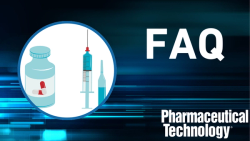
OR WAIT null SECS
- About Us
- Advertise
- Contact Us
- Editorial Info
- Editorial Advisory Board
- Do Not Sell My Personal Information
- Privacy Policy
- Terms and Conditions
© 2026 MJH Life Sciences™ , Pharmaceutical Technology - Pharma News and Development Insights. All rights reserved.
FDA Will Not Approve Generics to Original OxyContin
The FDA approved updated labeling for Purdue Pharma L.P.?s reformulated OxyContin tablets, but also determined that it will not approve generic versions of the original OxyContin.
The U.S. Food and Drug Administration approved updated labeling for Purdue Pharma L.P.’s reformulated OxyContin (oxycodone hydrochloride controlled-release) tablets, but also determined that it will not approve generic versions of the original OxyContin.
The new labeling for Purdue’s reformulated OxyContin tablets indicates that the product has physical and chemical properties that are expected to make abuse via injection difficult and to reduce abuse via the intranasal route (snorting), the FDA reports.
In a press release, agency reported that because original OxyContin provides the same therapeutic benefits as reformulated OxyContin, but poses an increased potential for certain types of abuse, the agency has determined that the benefits of original OxyContin no longer outweigh its risks; original OxyContin was withdrawn from sale for reasons of safety or effectiveness. The agency will not accept or approve any abbreviated new drug applications (generics) that rely upon the approval of original OxyContin.
The FDA approved the original formulation of OxyContin in Dec. 1995. The product was abused, often following manipulation intended to defeat its extended-release properties. Such manipulation causes the drug to be released more rapidly, which increases the risk of serious adverse events, including overdose and death, the statement explains. In April 2010, the FDA approved a reformulated version of OxyContin, which was designed to be more difficult to manipulate for purposes of misuse or abuse. Purdue stopped shipping original OxyContin to pharmacies in August 2010.
“The development of abuse-deterrent opioid analgesics is a public health priority for the FDA,” said Douglas Throckmorton, M.D., deputy director for regulatory programs in the FDA’s Center for Drug Evaluation and Research. “While both original and reformulated OxyContin are subject to abuse and misuse, the FDA has determined that reformulated OxyContin can be expected to make abuse by injection difficult and expected to reduce abuse by snorting compared to original OxyContin.”
The FDA has determined that the reformulated product has abuse-deterrent properties. The tablet is more difficult to crush, break, or dissolve. It also forms a viscous hydrogel and cannot be easily prepared for injection. The agency has determined that the physical and chemical properties of the reformulated product are expected to make the product difficult to inject and to reduce abuse via snorting. However, abuse of OxyContin by these routes, as well as the oral route, is still possible. The reformulated product also may reduce incidents of therapeutic misuse, such as crushing the product to sprinkle it onto food or to administer it through a gastric tube. When FDA finds that a new formulation has abuse deterrent properties, the agency has the authority to require generics to have abuse-deterrent properties also, the press statement reports.
In a separate company statement, Purdue Pharma reported that the company was “gratified that the FDA has determined that the original OxyContin extended release tablets were withdrawn from sale for reasons of safety or effectiveness.”
Purdue reports that the company has completed laboratory manipulation and extraction testing, pharmacokinetic and abuse “liking” studies for the reformulation of OxyContin. Additionally, it has undertaken a series of epidemiological studies to evaluate in real world settings whether the changes made to OxyContin’s formulation are resulting in a decrease in misuse and abuse and their consequences: addiction, overdose and death. Results from these studies are being reported to the FDA on an ongoing basis and have also been presented at scientific meetings and/or published in peer-reviewed medical journals, the company says.



